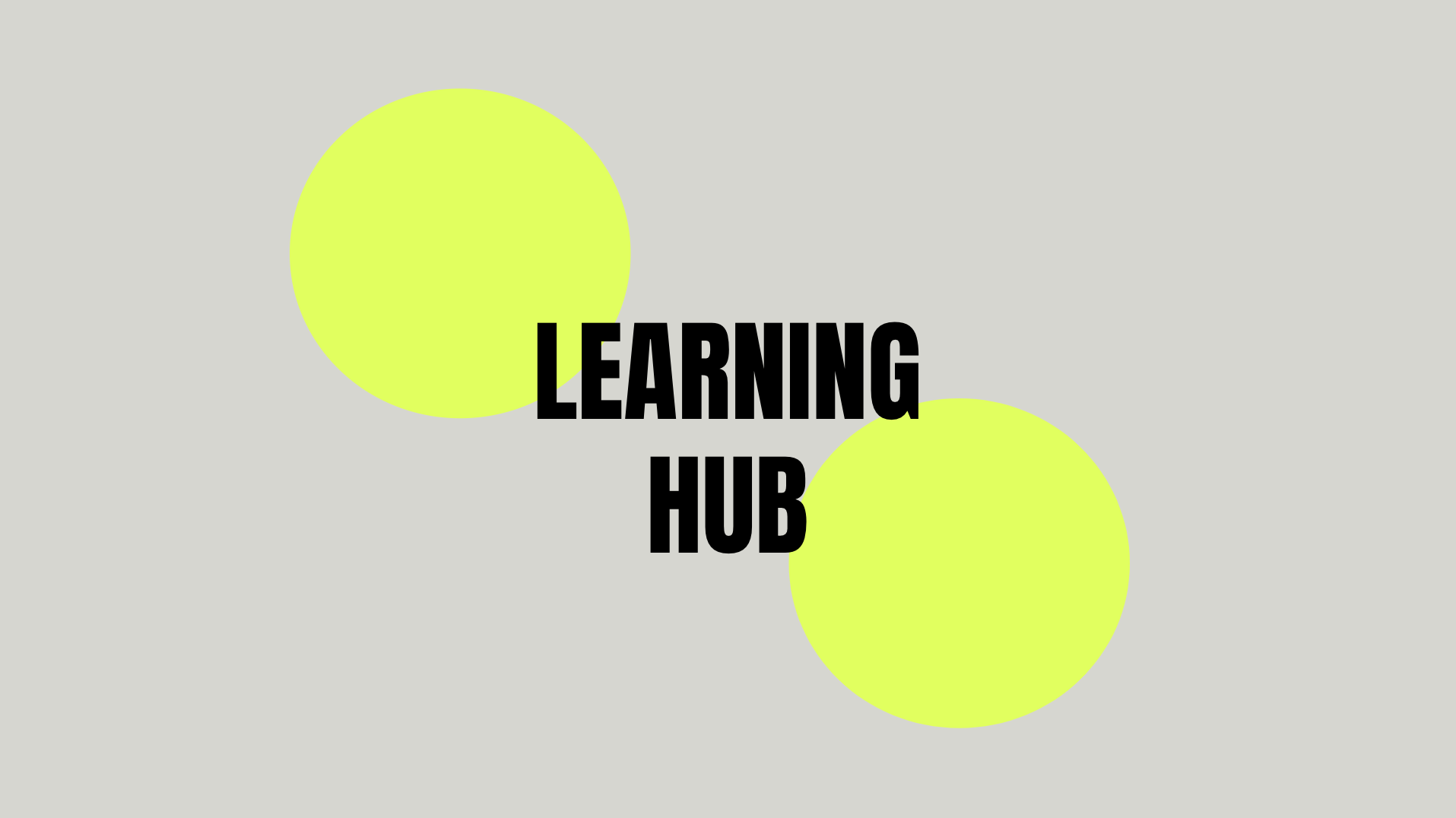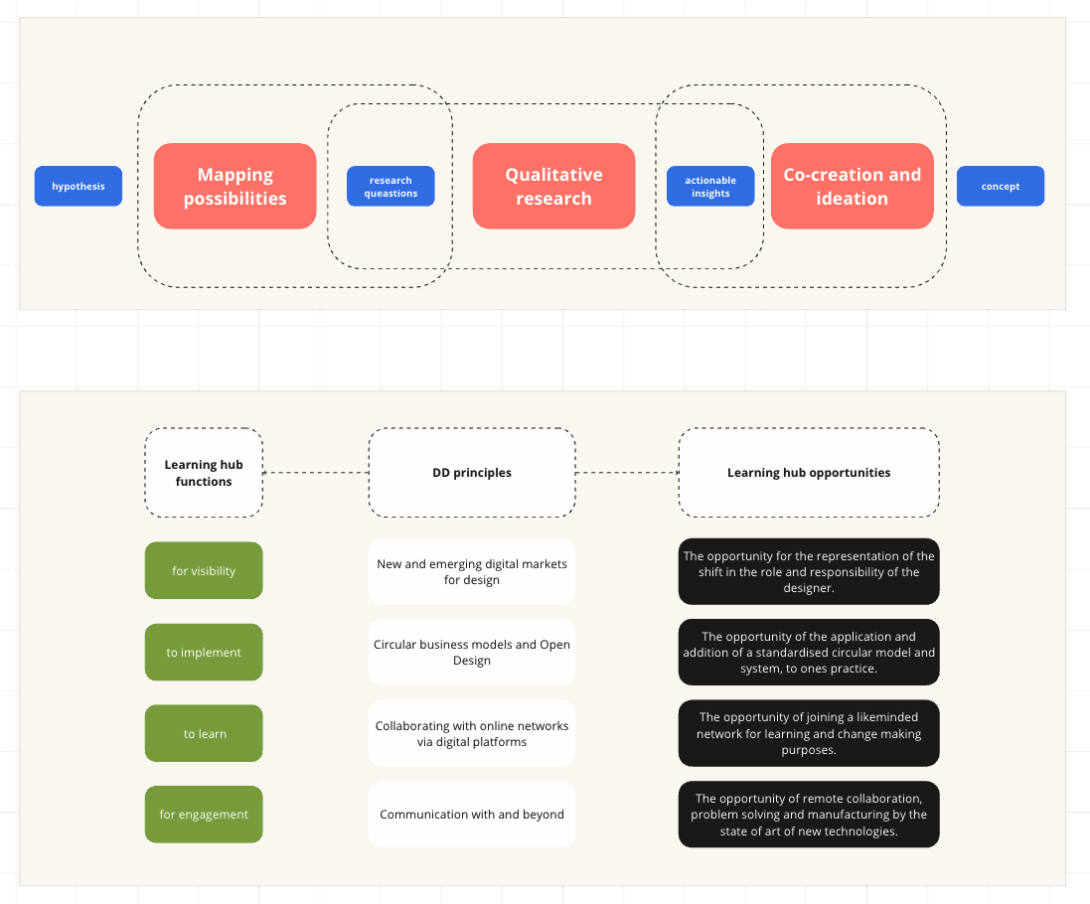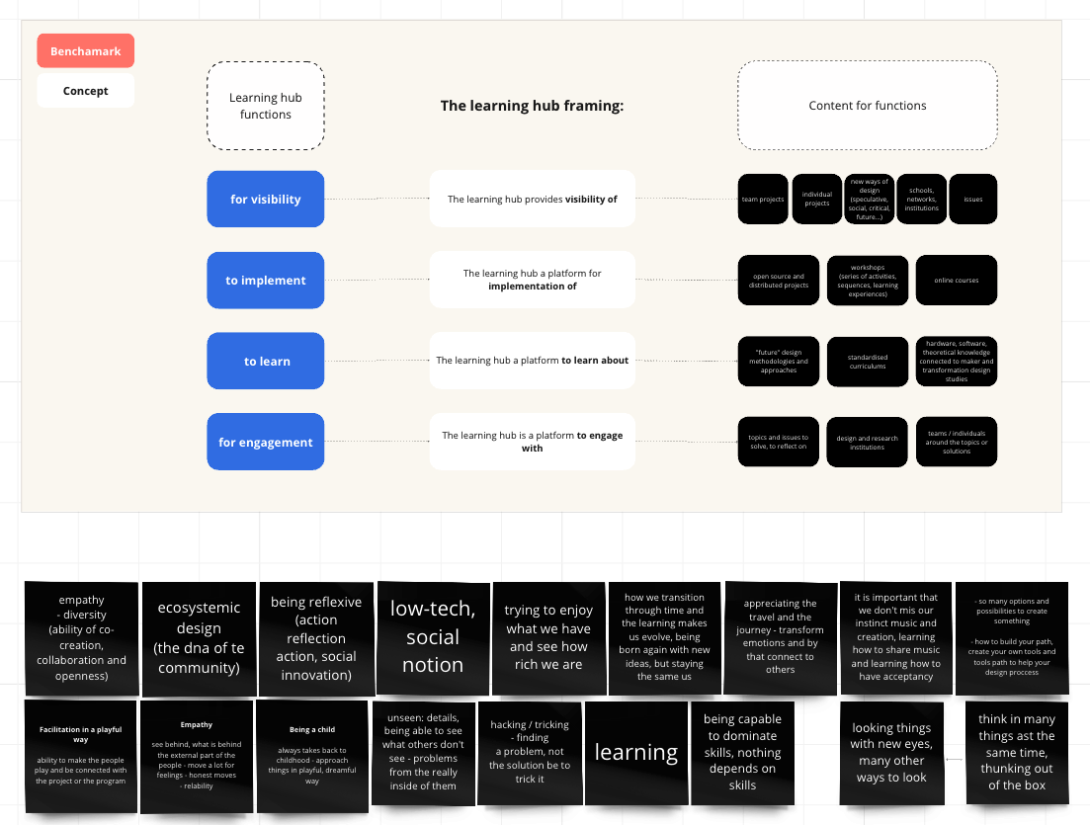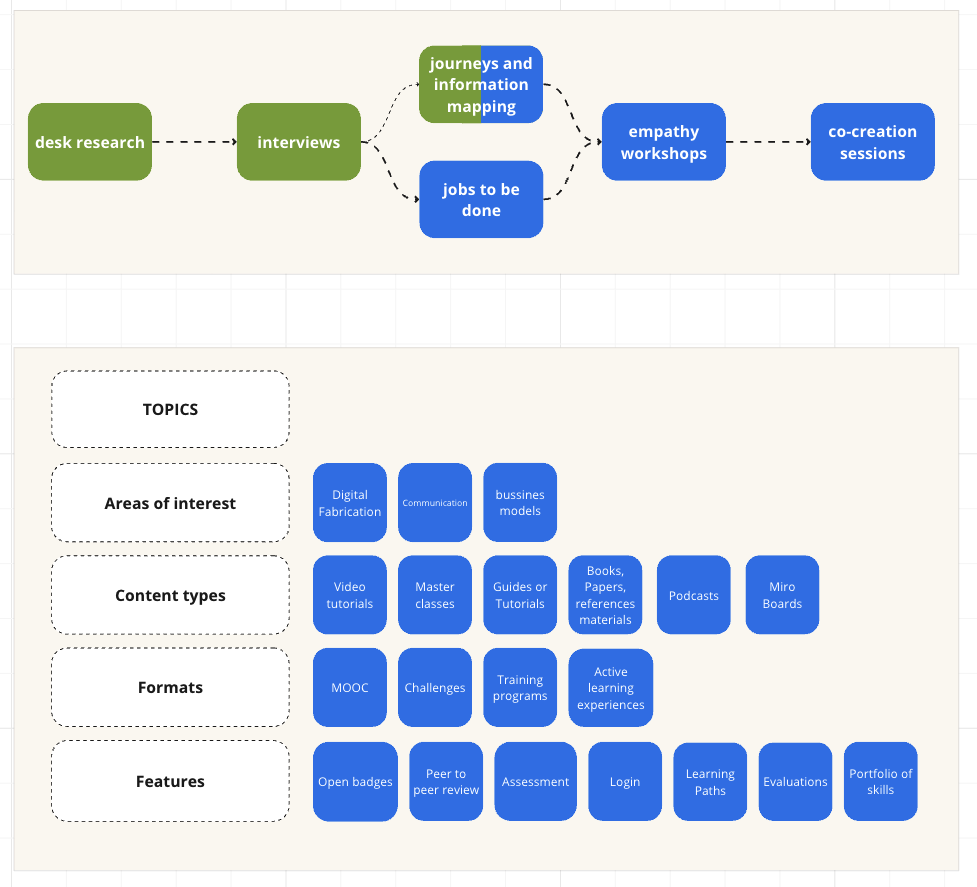This blog post explores the development of the Distributed Design Platform Learning Hub, showcasing the methodology behind it. The aim is to develop, nurture, and train emerging talents by centralizing and disseminating the knowledge acquired by the Distributed Design Platform and Fab Lab Barcelona network over the years from its members, students, teachers, and friends. Taking advantage of the reach of digital platforms, the goal is to provide high-quality resources for formal and non-formal (including self-directed) training.
Currently, our diverse range of courses spans from non-degree programs like Fab Academy, Circular Maker Academy, and Fabricademy, to advanced degrees such as the Masters in Design for Emergent Futures. These courses aim to educate creatives on the importance of the maker movement and the principles of Distributed Design. The focus of all our courses is to share specific knowledge while fostering and facilitating the creation of communities of practices interested in topics like circular cities, social cohesion, responsible technologies, etc.
Now, imagine the possibilities if all these offerings could be available through a single online platform– serving as a distributed school, a knowledge base for educators, learners, and practitioners, a community hub for makers and designers from all around the world.
As the coordinating entity, Fab Lab Barcelona at IAAC, with the Platform members is actively developing an umbrella learning platform that leverages on the distribution of the knowledge. Highlights are already accessible through the Resources page on our website. The resources encompass methodologies, tools, and competencies of the Distributed Design community acquired through the years. This was achieved through a collaborative process with the community itself, facilitated by targeted workshops.
The development of the Learning Hub
The Learning Hub platform is in development through an ongoing participatory research process. The aim is to map through interviews and workshops the learning path and understand the required and existing skills and competencies of the maker community and the network of the Distributed Design Platform. A part of this process included desk research to identify and benchmark best practices from other resource platforms, emphasizing support and collaboration instead of reinventing the wheel.
From the participatory research findings, emerged the importance of recognizing areas of expertise within the Learning Hub. Through these areas, we can understand and address the skills and competencies within our community, along with establishing appropriate learning pathways to meet the needs of the emerging talents. This approach is designed to support makers, designers, and craftspeople with the resources available from our educators, mentors, and experts.
The embodiment of the findings
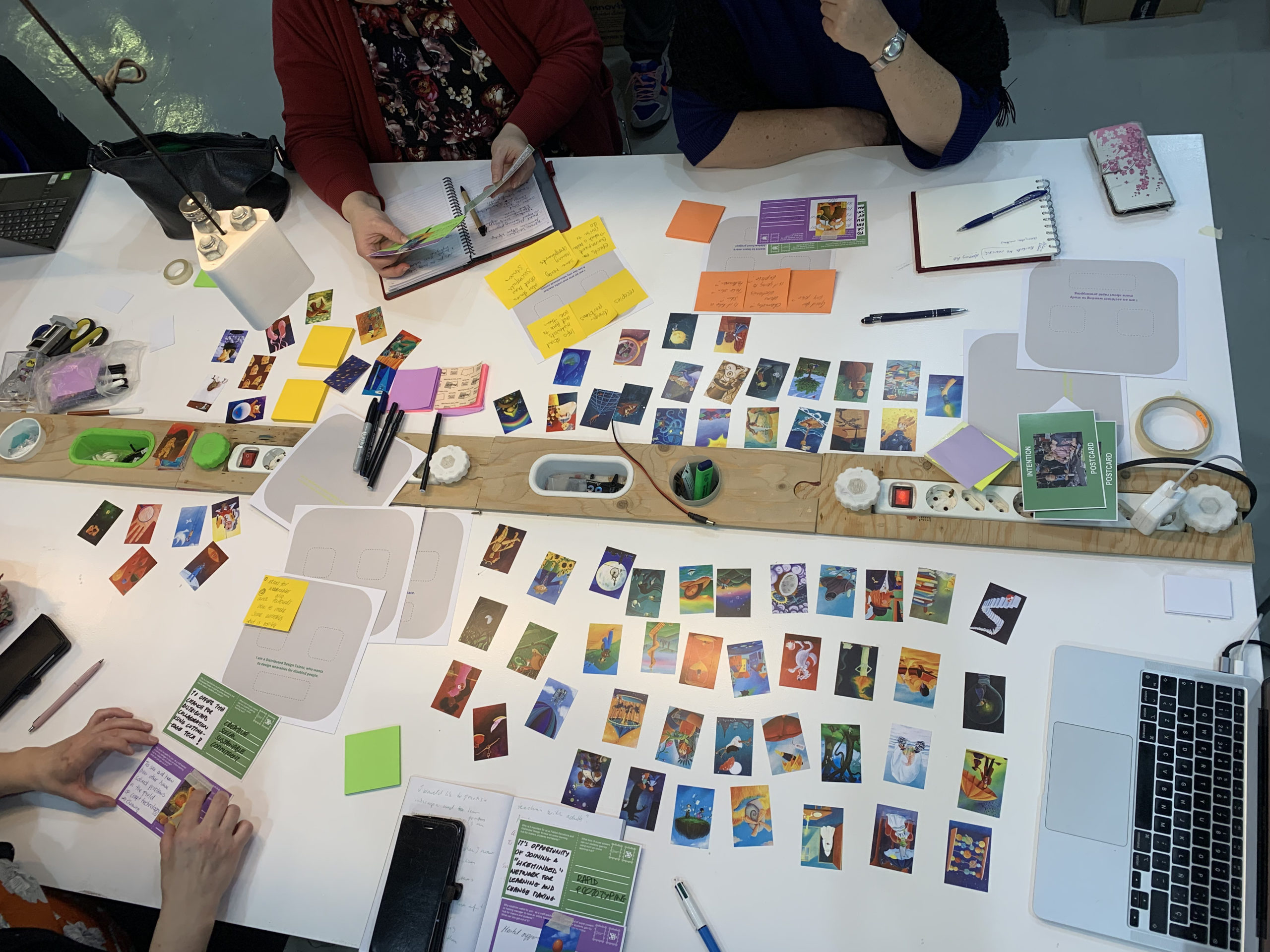
To conceptualize the theory of such a learning hub, we enjoyed co-creating many concepts with our team and friends from Nurmijärvi Adult Education Centre in Finland who are makers and educators.
The objective of the first ideation and co-creation workshop was to understand what kind of impact we, educators, are looking for in an online learning hub for maker education.
The workshop series consisted of 4 tasks, including empathy and role-playing, association tasks, and intention planning. This involved ideation of functions, activities, or events that could support our intentions. Lastly, we imagined different entry points and journeys – from wanting to learn or explore something to the intention point we want to reach.
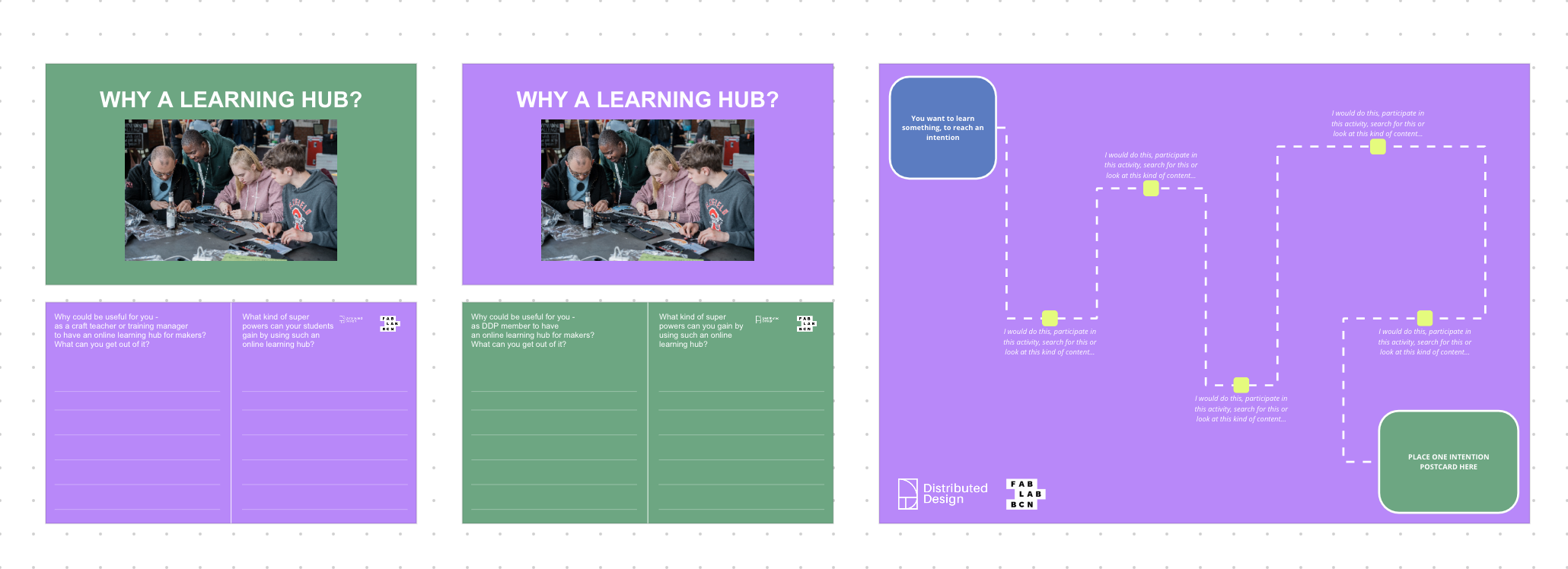
Some key intentions of the participants, both as educators and from the perspective of their students, included: having a platform to learn how other makers reflect on ecological and social problems; accessing ready-to-use ‘recipes’ for various craft techniques or materials; joining a platform where people can observe not only the implementation of products or services but also understand the process and the potential challenges; and fostering a mental opening for innovation, particularly with the value of working collaboratively towards a shared goal.
“For us craft people, it (a Learning Hub like this) is crucial, as it represents the evolving role of designers in shaping a sustainable and innovative future.”
“As a design student, the Learning Hub could provide me with easy access to digital techniques that are not covered by the curricula of my university”
“Being an educator myself, I could see the opportunity to share my latest research through an open and tangible learning experience to people and more students.”
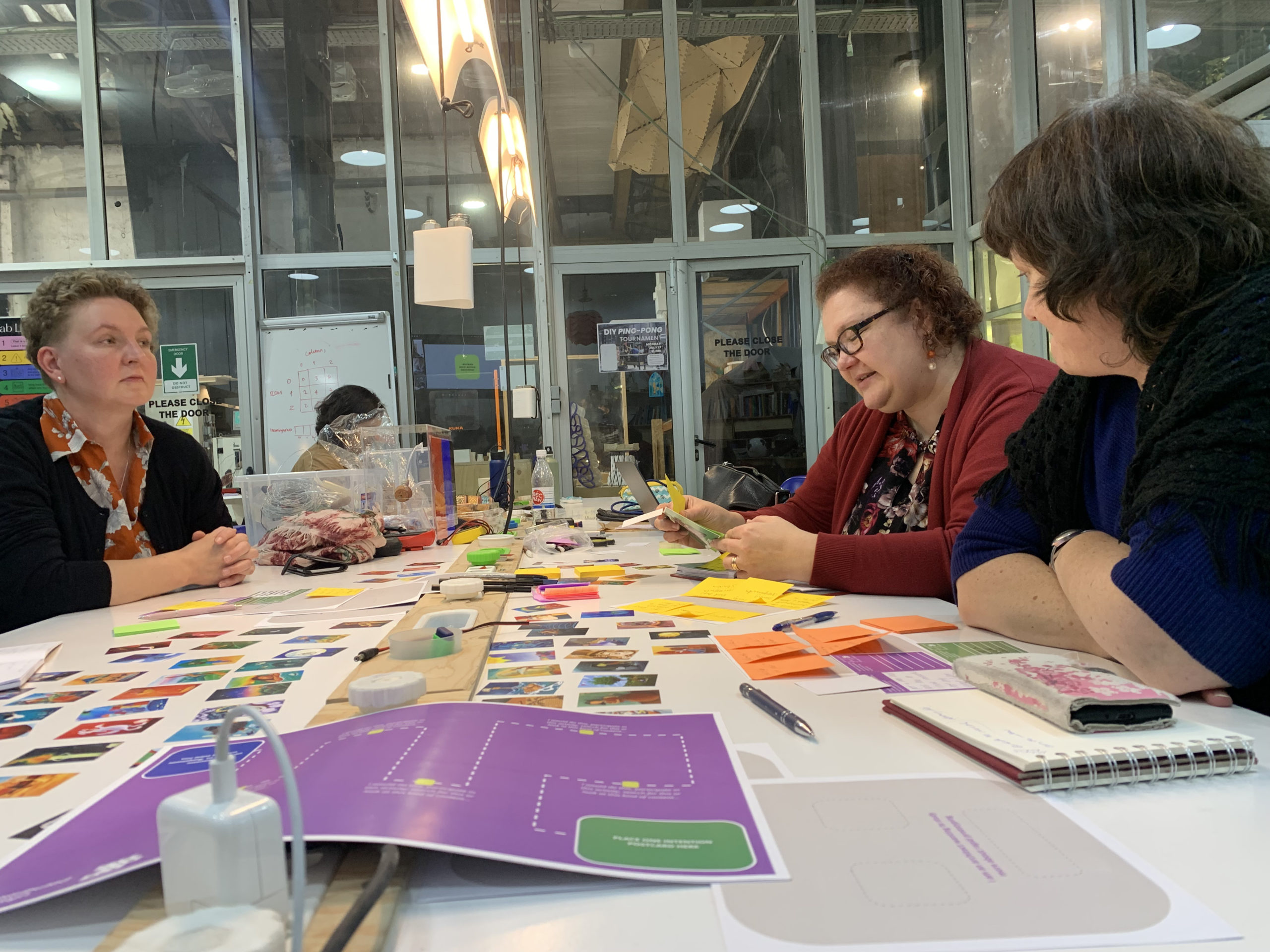
How to approach the platform
The Learning Hub answers to four distinct approaches: those seeking to learn, those curious to explore, those aspiring to teach, or those looking to become part of a community.
It includes the nine emerging topics of (1) Social Cohesion & Community Practices, (2) Strategies for Circular Cities & Resilient Territories, (3) Cultural Heritage & Crafts New Tech, (4) Fashion & Circular Principles, (5) Material Exploration, (6) Ethical and Responsible Technologies, (7) Food Systems, (8) Business for Creative Practices, and (9) Machines and Tools.
The database includes over a hundred learning resources, publications, masterclasses, tools, and methodologies produced over the years by the Distributed Design Platform Network and the Fab Lab Barcelona community. A customized taxonomy and tagging system has been developed to answer the needs and guide the users through the chosen narrative and learning path within a low-fidelity concept interface.
To support the hypothesis of the Learning Hub as a flexible and adaptable environment through research, the goal is to continuously create and update conceptual prototypes, i.e., multiple formats, infrastructures, and embedded technologies that engage learners throughout their learning path.
Conclusion
The Distributed Design Platform Learning Hub functions as an online umbrella platform actively engaging learners in their journey. Users can develop their skills and competencies while also becoming part of the community by sharing knowledge, experiences, content, and expanding their professional networks.
